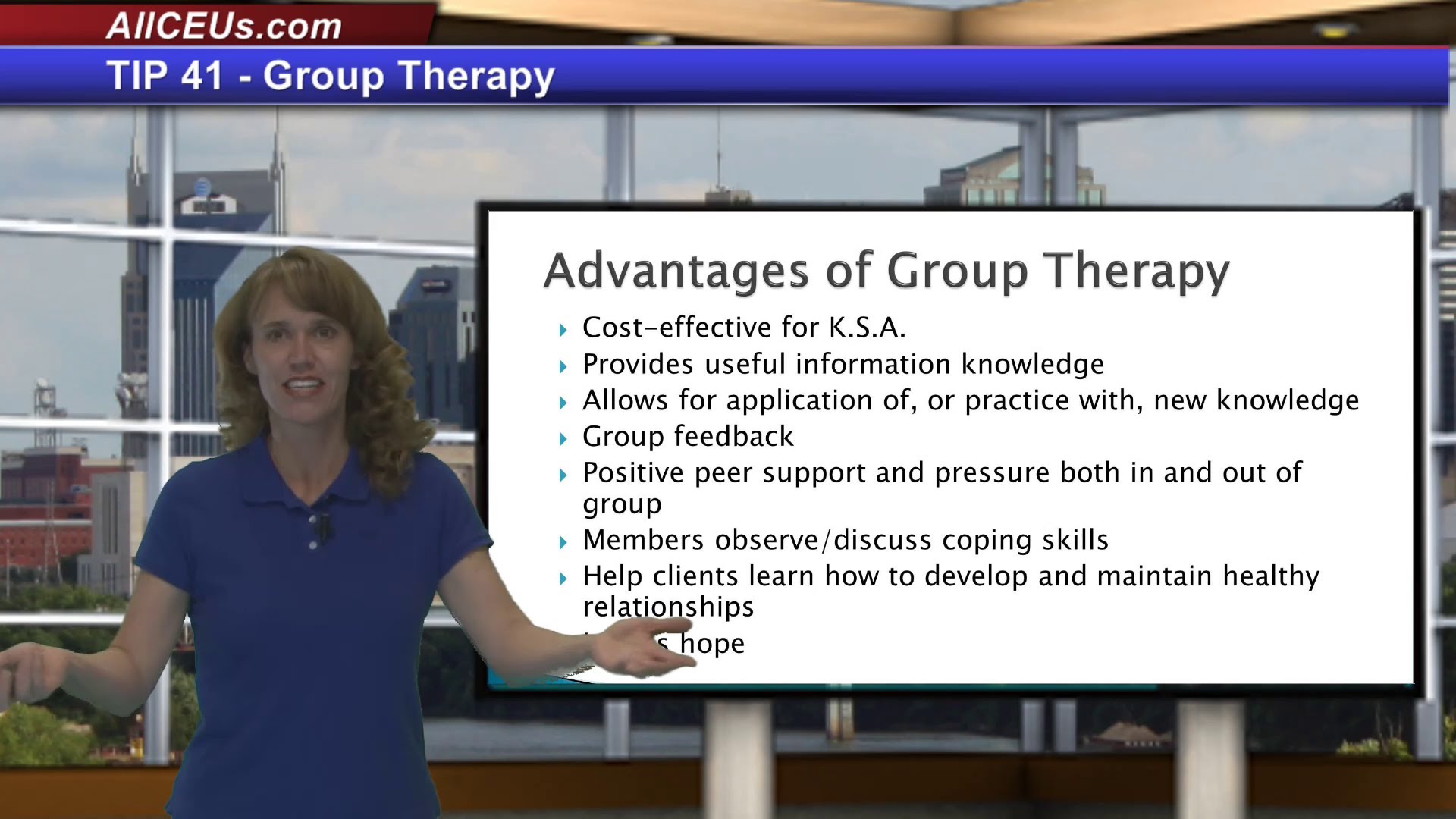Substance Abuse Therapy andGroup Treatment Based mostly on Idea 41
Dr. Dawn-Elise Snipes PhD, LMHC, CRC, NCC
**Check out the New Harbinger Catalog and get your 25% discount on their solutions by entering coupon code: 1168SNIPES when you check out out**
Goals
Evaluation the strengths of team treatment
Outline kinds of treatment teams
Investigate how each individual form of treatment team could be helpful as an intervention
Evaluation basic ideas of adult studying idea
Explore methods to improve various teams of people today
Advantages of Team Treatment
Expense-productive for K.S.A.
Offers helpful info know-how
Permits for application of, or exercise with, new know-how
Team comments
Good peer guidance and pressure equally in and out of team
Members observe/discuss coping abilities
Help shoppers understand how to establish and preserve balanced interactions
Instills hope
Team Treatment and Therapy
Therapy programs can be structured all over
Expertise
Capabilities
Abilities
seven Types of Teams
Psychoeducational
Capabilities Growth
Cognitive-Behavioral
Issue Fixing
Assist
Interpersonal Course of action
Blended
Psychoeducational Teams
In particular practical in early phases of readiness for change
Offers info about the troubles(s)
Allows family members recognize the human being and what is desired of them
Allows shoppers and family members understand about resources
Offers social guidance in and out of team
Crucial element is to proficiently offer info and aid the consumer include it
Types of Psychoeducational Teams
Melancholy Recognition
Pharmacology
Habit Idea
Relapse Avoidance
The Addicted Family members
Coping Capabilities and Defense Mechanisms
Mental Health Recognition
Melancholy, anxiety, PTSD
Implementing Psychoeducational Teams
Sections of studying
Reception
Conceptualization
Emotion
Understanding Styles
Auditory (listen to it), Visual (see it), Kinesthetic (Implement it)
Active (Extrovert) vs. Reflective (Introvert)
World (summary) vs. Sequential (piece by piece)
Assimilation (Borg) or lodging
Capabilities Growth
Train abilities to tackle deficits which guide to the presenting trouble
Social
Refusal
Interaction
Anger Administration
Strain Administration
Time Administration
Techniques
Rehearsal
Role Reversal
Observation
CBT Teams
Takes advantage of the A-B-C-D-E format to tackle views, beliefs, choices, opinions and assumptions
Activating Function/Motion
Beliefs
Implications
Disputing Beliefs
Analyzing Reactions
Active Roles
Existing and Long term Emphasis
Crucial Contributors
Albert Ellis’ irrational views
Aaron Beck’s cognitive distortions
Irrational Feelings
I will have to be cherished or authorised of all the time
I will have to be capable at anything
I am poor and will have to be punished
I will have to get my personal way
I have no management in excess of what occurs
Anything frightening will have to be averted
It is less difficult to keep away from challenges
The earlier will usually impact me
Most contentment can be obtained by inaction
Cognitive Distortions (Aaron Beck)
All or nothing
Overgeneralization
Magnification of the damaging
Disregarding/minimization of the favourable
Jumping to conclusions
Personalization
Mental Filtering
Issue Fixing Teams
Incorporate a little bit of psychoeducation with abilities
Focused on a certain concern
Led by a facilitator
Assist Teams
Geared all over a individual concern or behaviour
May possibly be trouble/resolution targeted or emotionally/interpersonally targeted
Additional interpretation/considerably less course
Types
Grief
Trauma
Habit
Divorce
Parenting
And lots of, lots of more.
Interpersonal Course of action Teams
Displays
Psychological functioning of each individual team member
How people today relate to each individual other
How the team functions as a total
Emphasis on the existing
Notify to recreations of the earlier in the team
Transference troubles
Ineffective communication (i.e. shutting down or working absent)

